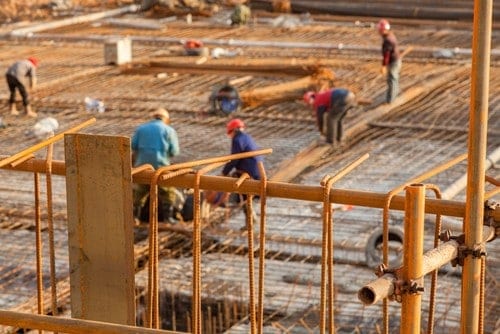Is your construction company’s budget small, but the need for new equipment is large? If so, perhaps buying used equipment is the right decision for you. This can be a cost-effective option, but there are a few considerations to keep in mind to reduce risk and ensure you’re getting a fair deal. Keep reading to find out what you need to know.
Check out the seller’s reputation and owner history — before you check out the piece of equipment in person, do research on both the seller and the machine itself. By gathering information on the seller, you can determine the type of deal you’re getting and if it’s likely to be an honest transaction. Furthermore, by researching the equipment’s history, you can see the number of ownership changes and the names of the owners — which provides insight on how the equipment was cared for. Preparing for the purchase ahead of time can help you spot a bad deal sooner or help you act faster when you find a great one!
Perform an inspection — take time to thoroughly inspect the equipment before purchase. If you’re familiar with the equipment, consider doing this yourself. If not, hire an expert or bring a trained colleague. In particular, the inspector should look for any discrepancies between the seller’s description and the actual condition of the equipment. Be sure to check commonly replaced parts most thoroughly. You may be able to spot early signs of weakness. If there are any major discrepancies between the supposed condition of the equipment and it’s actual state, consider rejecting the sale.
Ask for copies of maintenance history — when service is performed on a piece of equipment, there should be a record. Ask the seller for copies to determine what type of maintenance was performed and when. Be on the lookout for repeated maintenance to the same parts and any serious damages. Additionally, check out signs of any self-maintenance. Beyond making sure the equipment is clean and rust-free, look for welding, missing parts, etc.
Take it out for a test — sometimes equipment looks great, but once it’s up and running, other problems come to light. Testing the equipment gives you an additional chance to spot structural weaknesses, fluid leaks, engine problems and other issues that won’t occur when the equipment is stationary. Moreover, if the seller is willing to let you run the equipment, you’re likely dealing with a genuine offer.
Research the availability and quantity of replacement parts — some makes and models have replacement parts that are harder to find than others. In worst cases, a manufacturer no longer makes the parts necessary to service the equipment if it breaks down. Before you sign for the machine, ensure the proper parts are available if maintence is required in the future. Not sure how to determine if parts are available? Provide a local dealership with the machine model type or ask a certified inspector.
Always obtain proof of purchase — get a copy of the purchase agreement in print and make sure both parties sign the document prior to leaving the site of the deal. Doing so will help protect the buyer in the event something goes wrong. On the contrary, it’s important for the seller to have documentation of the sale for taxable income purposes, or should problems arise post-sale.


